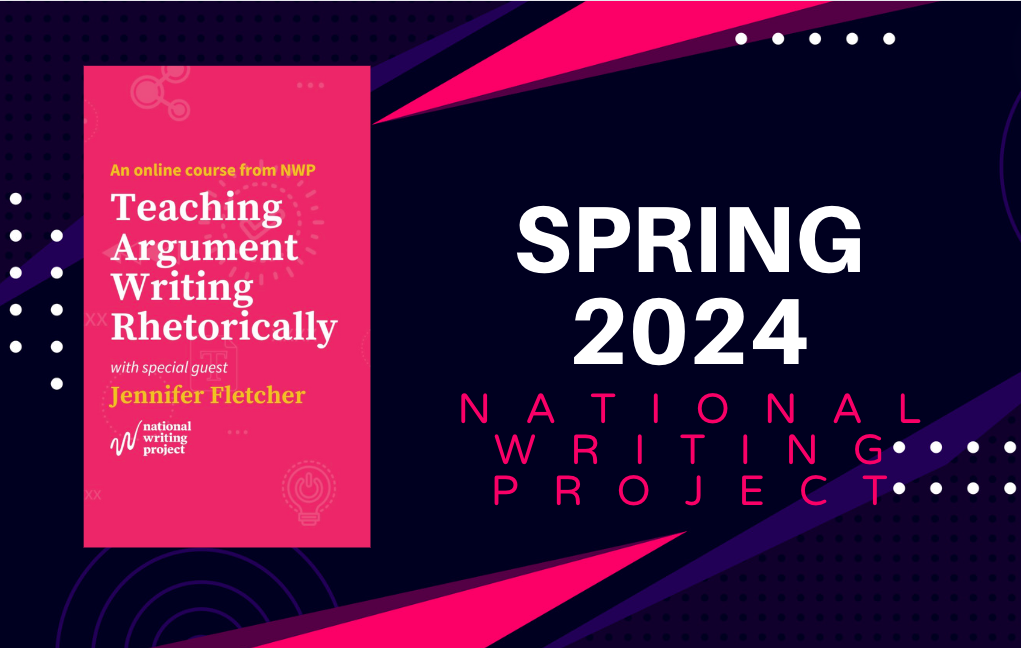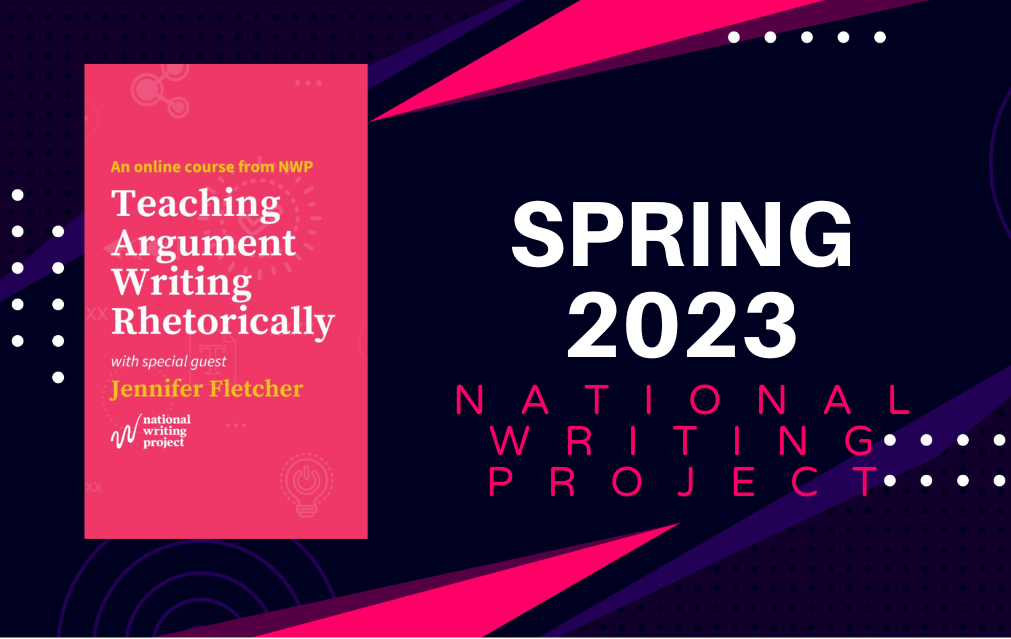By Jennifer Fletcher I’m a big fan of home improvement shows: This Old House, Love It or List It, Good Bones–you name it, I’ve probably watched it. But my new favorite show is causing me to rethink the whole home makeover formula. Recently, I’ve been watching Cheap Irish Homes. This is the house hunting showContinue reading “Let Chaos Come”
Author Archives: admin
Teaching Argument Writing Rhetorically
Hi folks! This spring, I’m delighted to be facilitating an online course for The National Writing Project on teaching argument writing rhetorically. If this sounds like something that might interest you, please keep reading for the course description and schedule. Kind regards, Jennifer Fletcher Course Overview A rhetorical approach to argument writing cultivates adaptive, independentContinue reading “Teaching Argument Writing Rhetorically”
New NWP Online Course!
Reasoning Rhetorically in the Age of AI By Jennifer Fletcher What is human reasoning? What does it mean to be a human, reasoning? These are some of the questions participants will explore in an online course being offered this spring by the National Writing Project as part of its series on teaching argument writing. I’mContinue reading “New NWP Online Course!”
The Danger of Shortcuts
By Jennifer Fletcher I had a revelation the other morning while feeding coins into one of our university’s parking meters: Shortcuts keep you stuck in survivor mode. You might be wondering why, in 2024, I’m paying for parking with loose change. “Isn’t there an app for that?” you might justifiably ask. Or better yet, youContinue reading “The Danger of Shortcuts”
Like an Owl Eats a Mouse
By Jennifer Fletcher Tertullian credo ut intelligam [I believe in order to understand]. (quoted in Writing Without Teachers by Peter Elbow) I can’t decide if this is brilliant or silly. But here’s the latest way I’ve been trying to teach students how to play Peter Elbow’s believing game, a strategy for understanding a text orContinue reading “Like an Owl Eats a Mouse”
New Online Course! Teaching Argument Writing Rhetorically
By Jennifer Fletcher This spring, I have the honor of facilitating an online course for the National Writing Project as part of its series on teaching argument writing. I have long been an admirer of everything NWP does, so this is a special treat for me. I feel like I’m among friends whenever I’m withContinue reading “New Online Course! Teaching Argument Writing Rhetorically”
Why I’m Not Losing Sleep Over AI
By Jennifer Fletcher The tweets, emails, and articles I’ve read the past few weeks in response to the launch of ChatGPT, the artificial intelligence chatbot that generates readable prose in response to almost any writing prompt, seemingly should have me tossing and turning in my bed. Educators have warned about a tsunami of plagiarism andContinue reading “Why I’m Not Losing Sleep Over AI”
From Rhetorical Triangle to Communication Pyramid
By Jennifer Fletcher For a while now, I’ve found myself struggling to say anything new or insightful about the Aristotelian rhetorical triangle. When I get to the slide with this diagram during a presentation or workshop I’m giving on rhetorical literacy skills, I say something about how all these components–text (logos), audience (pathos), and rhetorContinue reading “From Rhetorical Triangle to Communication Pyramid”
Developing Students’ Genre Awareness
By Jennifer Fletcher The first time I used an emoticon in a work email it just felt wrong. Years of being told to follow the “rules” of business communications—no exclamation points, nothing cutesy or personal—made that little smiley face seem like an act of rebellion. But I was far from being a rebel. The slang,Continue reading “Developing Students’ Genre Awareness”
Making the Most of the Opportune Moment
By Jennifer Fletcher In the novel The Hundred Secret Senses (1996), Amy Tan describes the sense of truth as a tingling along the back of the neck. I think of kairos the same way—a felt sense of truth to the moment. It’s that heightened awareness that helps us say the things that need to beContinue reading “Making the Most of the Opportune Moment”









